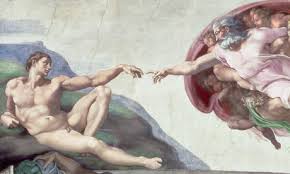Thirty-Third Sunday in Ordinary Time
“But of that day or hour, no one knows, neither the angels in heaven, nor the Son, but only the Father.” Mk. 13:32
May 21, 2011
Remember that date?
That was when the world was going to come to a catastrophic end – at least according to a man named Harold Camping.
Remember him? He was the one who happily convinced millions of people to send him their dollars so they could be relieved of any financial burdens before the end times.
Needless to say, Harold Camping was wrong. In fact, according to Wikipedia, he had been wrong on several occasions. In 1994, for example, he was wrong three times!
In 1995, however, he was only wrong once. But then he was bold enough to claim that all those previous missed predictions were mistaken only because they were simply a means of helping us all get fully prepared for the “real end” on October 21, 2011. As one writer suggested, “He wasn’t the only one to be wrong in his prediction of the end of the world. He just did it with the greatest number of billboards and RVs.”
These types of predictions actually go way back in time. In fact, as early as 90 A.D., just some 60 years after the death of Jesus of Nazareth, Bishop Clement of Rome predicted it would happen. It was next supposed to happen in 365, then in 400, then in 968, and most recently in the year 2000, a crash also known as Y2K.
Christians of every nationality have consistently predicted that the end was near – and just as consistently have been wrong.
The Gospel of Mark that we read today, and the other Gospels along with it, has certainly contributed to this fascination with the end times. Jesus, John the Baptist, and Paul all seem to have expected the rapid arrival of the final reign of God. They all seemed to be saying to their followers the same thing:
“Soon. It will all happen soon. Hold on. We will make it. It will all be better then. Every tear will be wiped away. All suffering will end. Your reward for believing will be realized.”
When you look at its appeal closely, I believe this is what the great attraction of the “end times” is really all about: “I will no longer have to deal with the cancer that has afflicted my spouse, or the depression that is ravaging my daughter, or the job that is sucking life out of me, or the debts that are suffocating me.”
“Come, Lord Jesus,” the earliest Christians prayed. Soon, they hoped. Soon, many people hope to this day.
Soon, so I will no longer have to watch children die in Africa from dirty water. Soon, so I will no longer have to hear about young people committing suicide, and sexual predators feasting on children, and the poor of our cities wasting away by drugging themselves into oblivion.
Soon, so I can be relieved of all of this and experience instead the fullness of Christ’s presence in my life.
It’s no wonder that so many people down through the ages have cried out for Christ’s immediate return and pined for a new, entirely different world.
But the reality is that “about that day or hour no one knows, neither the angels in heaven, nor the Son, but only the Father.”
The good news in all of this is there is a gift, a grace that the person of Jesus offers us all: the virtue of hope.
Hope in knowing that history is in God’s hands.
Hope in knowing that the world is ultimately the creation of a loving parent.
Hope in knowing that the goodness of Christ is far greater than the terrible brutality of violence.
Hope in knowing that the world’s final destination is the boundless, abundant, mercy of God.
With that hope comes our ability to pray:
Come, Lord Jesus. Come into our hearts and implant deeply there that great virtue of hope – the hope that in the end your gigantic Love will triumph over all.
Ted Wolgamot, Psy.D.
11809194.1
11/11/15





